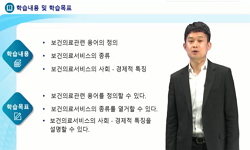인류의 역사는 ‘자유 신장을 위한 전쟁’이라 단언해도 좋을 만큼, 자유는 인류에게 중요한 가치이다. 그러나 스마트폰의 출현으로 어디서든 인터넷 접속이 가능한 유비쿼터스 시대가 도...
http://chineseinput.net/에서 pinyin(병음)방식으로 중국어를 변환할 수 있습니다.
변환된 중국어를 복사하여 사용하시면 됩니다.
- 中文 을 입력하시려면 zhongwen을 입력하시고 space를누르시면됩니다.
- 北京 을 입력하시려면 beijing을 입력하시고 space를 누르시면 됩니다.

정보의 웰-다잉(Well-dying)을 위한 입법론적 검토 = A Legislative Review on the Well-Dying of Information - Focusing on Technical Measures and their Limitations
한글로보기https://www.riss.kr/link?id=A102838328
- 저자
- 발행기관
- 학술지명
- 권호사항
-
발행연도
2014
-
작성언어
-
- 주제어
-
KDC
366
-
등재정보
KCI등재
-
자료형태
학술저널
- 발행기관 URL
-
수록면
47-110(64쪽)
- 제공처
-
0
상세조회 -
0
다운로드
부가정보
국문 초록 (Abstract)
역사 속에서 인류가 피 흘리며 쌓아온 자유가 침해되고 있다. 이미 빅데이터에 대해 사람들은 두려움을 느끼고 있으며, 메시지를 보내는 사람이 수신자가 1∼10초내 메시지를 볼 수 있도록 제한한 ‘스냅챗’까지 등장하였다. 2014년 5월 이런 현실을 인식한 ECJ이 판결이 등장하였다. 이미 온라인서비스제공자의 정책, 각 국의 법에 알게 모르게 ‘잊힐 권리’가 녹아들어 있음에도 불구하고 ‘잊힐 권리’가 논의된 첫 판결이라는 점에서 이번 ECJ 판결의 의의가 크다. 많은 나라가 ‘잊힐 권리’의 필요성을 인정하면서도 이를 명시적으로 인정하지 않는 이유는 정보를 어떻게 통제하며, 누가 통제권을 행사할 것인지, 어떻게 행사할 것인지 등의 많은 문제들이 산재되어 있기 때문이다.
즉 ‘정보의 Well-dying’이 우리의 발목을 잡고 있는 것이다.
이에 본 논문에서는 ECJ판결과 우리나라의 관련 현행법을 간략히 살펴본 후, ‘잊힐 권리’와 함께 ‘정보를 어떻게 Well-dying시킬 것인지’를 정보유형별로 나누어 논의하겠다. ‘잊힐 권리’를 포괄적으로 인정하게 되면 인류의 중요 가치인 자유가 과도하게
침해될 뿐만 아니라, 정보의 성격에 따라 ‘잊힐 권리’의 행사가 차별적으로 인정되는것이 타당하기 때문이다. 그러므로 ‘잊힐 권리’ 행사여부에 초점을 맞추기 보다는, 정보유형을 나눈 후 이에 따라 개별적으로 판단하여 ‘정보의 Well-dying’을 위한 입법적⋅ 기술적 해결방안을 논의하겠다. 정보의 Well-dying문제는 누가 정보통제권을 행사할수 있는지, 어느 정도의 범위까지 인정할 것인지, 현재 기술 및 자치적 규정으로 해결 가능한지 여부 등에 관한 것으로 정보의 Well-dying에 대한 논의가 선행되어야 ‘잊힐권리’가 실질적으로 행사될 수 있다. 현 ECJ판결도 ‘잊힐 권리’를 전면적으로 인정하지 않은 데에는 현재 구체적 개념, 근거, 내용 및 한계가 불명확한바 현실적으로 도입하기에 많은 문제가 있음을 인식한 결과이다.
그러므로 규제자의 책임성이 새로운 사회적 문제가 될 수 있음을 인식하고 이를 견제하기 위하여 우리에게 가장 중요한 가치가 무엇인지를 상기하며, 이러한 구체적인 정보의 유형에 따라 삭제권 인정여부를 법제화 한다면 ‘정보의 Well-dying’과 함께 잊힐 권리와 관련된 문제들을 보다 합리적이고 명확하게 해결할 수 있을 것이다.
인류의 역사는 ‘자유 신장을 위한 전쟁’이라 단언해도 좋을 만큼, 자유는 인류에게 중요한 가치이다. 그러나 스마트폰의 출현으로 어디서든 인터넷 접속이 가능한 유비쿼터스 시대가 도래하였고, 인간의 편의를 위해 발전된 정보통신기술로 인해 장구한
역사 속에서 인류가 피 흘리며 쌓아온 자유가 침해되고 있다. 이미 빅데이터에 대해 사람들은 두려움을 느끼고 있으며, 메시지를 보내는 사람이 수신자가 1∼10초내 메시지를 볼 수 있도록 제한한 ‘스냅챗’까지 등장하였다. 2014년 5월 이런 현실을 인식한 ECJ이 판결이 등장하였다. 이미 온라인서비스제공자의 정책, 각 국의 법에 알게 모르게 ‘잊힐 권리’가 녹아들어 있음에도 불구하고 ‘잊힐 권리’가 논의된 첫 판결이라는 점에서 이번 ECJ 판결의 의의가 크다. 많은 나라가 ‘잊힐 권리’의 필요성을 인정하면서도 이를 명시적으로 인정하지 않는 이유는 정보를 어떻게 통제하며, 누가 통제권을 행사할 것인지, 어떻게 행사할 것인지 등의 많은 문제들이 산재되어 있기 때문이다.
즉 ‘정보의 Well-dying’이 우리의 발목을 잡고 있는 것이다.
이에 본 논문에서는 ECJ판결과 우리나라의 관련 현행법을 간략히 살펴본 후, ‘잊힐 권리’와 함께 ‘정보를 어떻게 Well-dying시킬 것인지’를 정보유형별로 나누어 논의하겠다. ‘잊힐 권리’를 포괄적으로 인정하게 되면 인류의 중요 가치인 자유가 과도하게
침해될 뿐만 아니라, 정보의 성격에 따라 ‘잊힐 권리’의 행사가 차별적으로 인정되는것이 타당하기 때문이다. 그러므로 ‘잊힐 권리’ 행사여부에 초점을 맞추기 보다는, 정보유형을 나눈 후 이에 따라 개별적으로 판단하여 ‘정보의 Well-dying’을 위한 입법적⋅ 기술적 해결방안을 논의하겠다. 정보의 Well-dying문제는 누가 정보통제권을 행사할수 있는지, 어느 정도의 범위까지 인정할 것인지, 현재 기술 및 자치적 규정으로 해결 가능한지 여부 등에 관한 것으로 정보의 Well-dying에 대한 논의가 선행되어야 ‘잊힐권리’가 실질적으로 행사될 수 있다. 현 ECJ판결도 ‘잊힐 권리’를 전면적으로 인정하지 않은 데에는 현재 구체적 개념, 근거, 내용 및 한계가 불명확한바 현실적으로 도입하기에 많은 문제가 있음을 인식한 결과이다.
그러므로 규제자의 책임성이 새로운 사회적 문제가 될 수 있음을 인식하고 이를 견제하기 위하여 우리에게 가장 중요한 가치가 무엇인지를 상기하며, 이러한 구체적인 정보의 유형에 따라 삭제권 인정여부를 법제화 한다면 ‘정보의 Well-dying’과 함께 잊힐 권리와 관련된 문제들을 보다 합리적이고 명확하게 해결할 수 있을 것이다.
다국어 초록 (Multilingual Abstract)
Under this climate, there comes a recent judgement of ECJ, the first case on the ‘right to be forgotten’. While many countries recognize the needs for a ‘right to be forgotten’, yet does not acknowledge it explicitly, there are many problems not to be solved, such as how to control the information; who and how to exercise control; in other words, the ‘Well-dying of information’.
In this paper, after briefly discussed the current laws and the relevant judgement of ECJ, some legal aspects of the ‘right to be forgotten’ will be discussed; dividing the information type and how the information well die. The ‘right to be forgotten should be recognized as limited and discriminatory depending on the type of the information, rather than
comprehensive right; therefore, we discuss the legislative and technological solutions for the’ Well-dying of information’ at each type of information divided by the subjects and controller of the informations; that are, who can exercise control over the information, whether to admit the extent of the degree, the current technology and autonomous regulation to resolve the debate about the ‘Well-dying of information’.
Recent ECJ ruling also does not accept the ‘right to be forgotten’ as a comprehensive right; because the concept, legal basis, scope and limitation of the ‘right to be forgotten’ is not clear and much to be left for future discussion.
Therefore, it should be appreciated that the responsibility of the information controller and regulation thereon; the legislation associated with the ‘Well-dying of information’ and ‘right to be forgotten’ based on the type of specific information will be able to clearly resolve the problems.
As affirmed in the human history, Freedom is of very much importance; in the ubiquitous era, however, human rights and liberty are paradoxically threatened by the advanced information and communication technologies for the convenience of human beings;...
As affirmed in the human history, Freedom is of very much importance; in the ubiquitous era, however, human rights and liberty are paradoxically threatened by the advanced information and communication technologies for the convenience of human beings; and for fear of big data abuses, people need a defensive application, such as ‘Snapchat’ where a message recipients are allowed only 1 to 10 seconds to see it.
Under this climate, there comes a recent judgement of ECJ, the first case on the ‘right to be forgotten’. While many countries recognize the needs for a ‘right to be forgotten’, yet does not acknowledge it explicitly, there are many problems not to be solved, such as how to control the information; who and how to exercise control; in other words, the ‘Well-dying of information’.
In this paper, after briefly discussed the current laws and the relevant judgement of ECJ, some legal aspects of the ‘right to be forgotten’ will be discussed; dividing the information type and how the information well die. The ‘right to be forgotten should be recognized as limited and discriminatory depending on the type of the information, rather than
comprehensive right; therefore, we discuss the legislative and technological solutions for the’ Well-dying of information’ at each type of information divided by the subjects and controller of the informations; that are, who can exercise control over the information, whether to admit the extent of the degree, the current technology and autonomous regulation to resolve the debate about the ‘Well-dying of information’.
Recent ECJ ruling also does not accept the ‘right to be forgotten’ as a comprehensive right; because the concept, legal basis, scope and limitation of the ‘right to be forgotten’ is not clear and much to be left for future discussion.
Therefore, it should be appreciated that the responsibility of the information controller and regulation thereon; the legislation associated with the ‘Well-dying of information’ and ‘right to be forgotten’ based on the type of specific information will be able to clearly resolve the problems.
목차 (Table of Contents)
- Ⅰ. 서론
- Ⅱ. ‘잊힐 권리’와 함께 ‘정보의 Well-dying’을 고민한 ECJ 판결
- 1. 사건 경위
- 2. ECJ의 판결 내용
- 3. 판결의 의의
- Ⅰ. 서론
- Ⅱ. ‘잊힐 권리’와 함께 ‘정보의 Well-dying’을 고민한 ECJ 판결
- 1. 사건 경위
- 2. ECJ의 판결 내용
- 3. 판결의 의의
- Ⅲ. 한국에서의 법제현황
- 1. 서설
- 2. 개인정보보호법상 정보주체의 권리보장제도
- 3. 정보통신법상 정보주체의 권리보장제도
- 4. 검토
- Ⅳ. ‘잊힐 권리’의 한계와 ‘정보의 Well-dying’에 관한 논의
- 1. 개관
- 2. ‘잊힐 권리’의 한계
- 3. 정보유형에 따른 ‘정보의 Well-dying’
- Ⅴ. 결론
동일학술지(권/호) 다른 논문
-
- 한국정보법학회
- 김기창(Kim, Keechang)
- 2014
- KCI등재
-
- 한국정보법학회
- 김형렬(Kim, Hyoung-Ryel)
- 2014
- KCI등재
-
- 한국정보법학회
- 구태언(Koo, Ted Taeeon)
- 2014
- KCI등재
-
- 한국정보법학회
- 장철준(Chang, Cheoljoon)
- 2014
- KCI등재




 KCI
KCI 스콜라
스콜라






